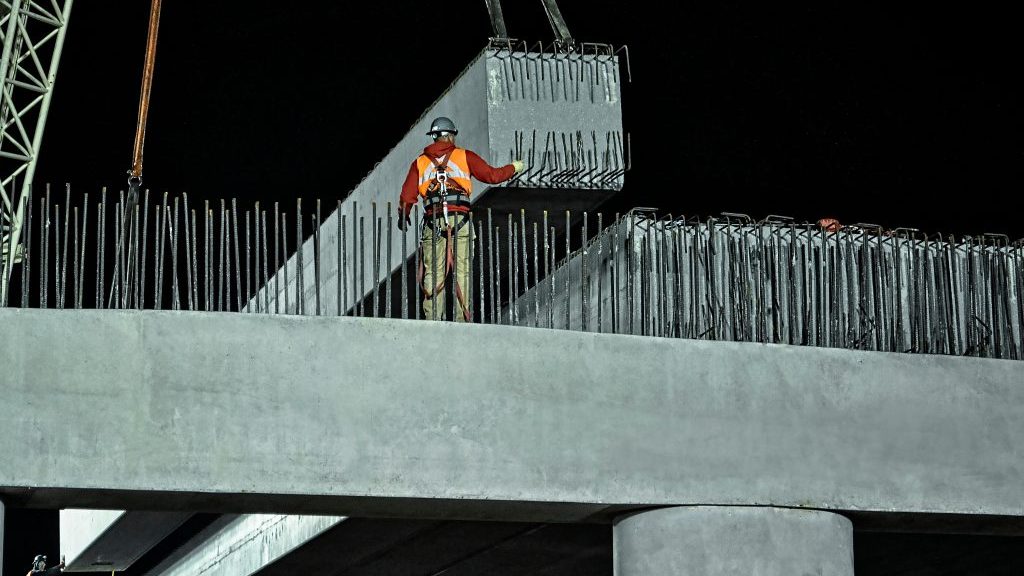A tax on construction services intended to boost Saskatchewan’s sinking economy is raising the ire of its official opposition party and is causing pushback from the industry.
Statistics Canada recently released numbers indicating building permit values in Saskatchewan plummeted 22 per cent, from $190 million in November 2017 to $140 million in November 2018.
The NDP opposition blames the imposition in April 2017 of a provincial sales tax (PST) on construction contracts for the reduced activity.
“The Saskatchewan Party government has brushed aside concerns from the construction industry, workers and the official opposition and has plowed ahead with imposing the PST on construction labour,” said NDP finance critic Trent Wotherspoon. “It’s a damaging time to do it as our economy is already slowing.”
The government said in a statement the PST was raised in 2014 in response to falling resource prices, and that it is sticking to its fiscal plan to “ensure the stability of Saskatchewan’s finances.”
“The government of Saskatchewan raised the provincial sales tax after resource prices plunged in 2014. We needed to reduce the government’s dependence on volatile resource revenues. This was a difficult decision, but it was a necessary decision to ensure the stability of Saskatchewan’s finances,” stated Government of Saskatchewan executive council senior communications adviser James Parker.
“Our government is sticking to its fiscal plan, controlling spending, keeping our economy strong and investing in the services, programs and infrastructure Saskatchewan people value today, and ensuring those investments are sustainable into the future.”
The NDP disagrees with the government’s assessment.
“The Government of Saskatchewan suggests this is their way to balance the budget, and we say that is weak because we have a weakened economy, and this is slamming the brakes and further weakening the economy,” Wotherspoon said.
He added the NDP’s position resonates with both with the public and construction stakeholders.
“As a critic, I’ve been holding meetings with businesses and communities across Saskatchewan. Many workers have been laid off and are now leaving Saskatchewan, which is an alarming reality when it comes to Regina and Saskatoon but also smaller cities like Moose Jaw,” he said.
“The Saskatchewan Construction Association (SCA) has been a strong voice right from budget time and all the way through. They’ve continued to advocate and the homebuilders’ associations have been strong on that front as well. Saskatchewan Building Trades have also spoken out against the imposition of the PST.”
SCA president Mark Cooper said while his organization agrees with the provincial government on many issues, it opposes the PST charge on construction services.
“We are opposed to the PST on construction services, have always been and will always be because we believe it’s a disincentive for investment in the province when we have neighbours like Alberta who don’t tax,” Cooper said.
“The cost of the tax flows on to the owner, which makes the cost of construction go up. So now you have to figure out financing and people may decide they aren’t prepared or, if they aren’t geographically fixed, just build in Alberta where you don’t pay it at all. It also means more layoffs and less hiring for the construction sector and at the end of the day that’s not good for the economy.”
But Cooper said the PST is likely a temporary measure and that his association is working with others to encourage the government to shelve the tax in the near future.
“The government has been good for growth in the province, but we believe this is an ill-timed decision. We continue to encourage them to be mindful of that. We’re also going to work with Merit Contractors Association SK to investigate the impact of the PST on construction and we’re hopeful once have they have that study, they will look at the PST and reconsider,” Cooper said.
Parker said the provincial government has introduced other legislation to support the construction industry, such as recent amendments to the Builder’s Lien Act to create reasonable timelines for payment.
“In addition, our government has worked hard to ensure Saskatchewan has a supportive business environment, with competitive taxes and regulations. While the economy has slowed recently, Saskatchewan has experienced strong growth during the last decade, compared to previous years,” Parker said.











Recent Comments
comments for this post are closed